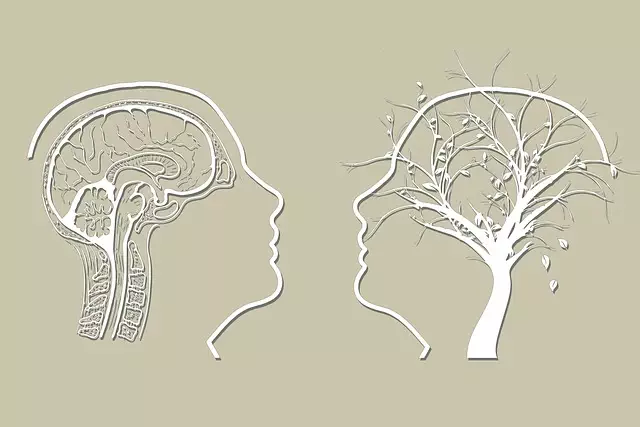Arvada Kaiser Permanente prioritizes cultural competency to deliver quality mental health care, understanding that respecting diverse values and communication styles builds trust. They offer training in stress management and coping skills development, ensuring personalized care. By embracing diversity as an asset, they create an inclusive environment where patients from all backgrounds feel heard. Their approach includes mental wellness coaching, trauma support, workshops on unconscious bias, and continuous learning for staff, improving patient outcomes and engagement, reflected in the increasing Arvada Kaiser Permanente mental health appointment number.
In today’s diverse healthcare landscape, cultural competency training is an indispensable tool for improving patient outcomes and fostering inclusive care. This article explores the critical role of cultural awareness in healthcare, focusing on strategies employed by leaders like Arvada Kaiser Permanente. We delve into the impact of cultural biases on patient interactions and mental health outcomes, offering practical insights from their programs. Additionally, we provide effective training methods for mental health professionals and methods to measure the success of cultural competency initiatives, emphasizing the importance of continuous improvement in healthcare delivery.
- Understanding Cultural Competency in Healthcare: A Necessary Foundation
- The Impact of Cultural Biases on Patient Care and Mental Health Outcomes
- Arvada Kaiser Permanente's Approach to Training for Diverse Populations
- Effective Strategies for Mental Health Professionals: Building Cultural Awareness
- Measuring Success: Evaluating the Effectiveness of Cultural Competency Programs
Understanding Cultural Competency in Healthcare: A Necessary Foundation

In the diverse healthcare landscape of today, cultural competency is no longer an optional skill for providers—it’s a necessary foundation for delivering quality care to all patients. Understanding and respecting cultural differences in values, beliefs, and communication styles are crucial steps towards building trust and fostering effective treatment plans. This is especially vital when addressing mental health concerns, as evidenced by the increasing number of Arvada Kaiser Permanente members seeking support for their emotional well-being.
Cultural competency training equips healthcare providers with the tools to navigate these differences, ensuring that every patient receives personalized care. Through initiatives like stress management workshops and coping skills development programs, professionals can cultivate compassion cultivation practices that improve patient outcomes. By embracing cultural diversity as an asset rather than a barrier, healthcare organizations like Kaiser Permanente in Arvada aim to create a more inclusive environment where every individual feels heard and understood during their mental health appointment number interactions.
The Impact of Cultural Biases on Patient Care and Mental Health Outcomes

Cultural biases within healthcare systems can significantly impact patient care and mental health outcomes. These biases often stem from unawareness or misunderstandings of diverse cultural practices, beliefs, and values. When healthcare providers possess limited knowledge about different cultures, it leads to miscommunication and a potential breakdown in trust between patients and caregivers. For instance, a patient from a non-Western background might express discomfort or pain differently than their caregiver is accustomed to, resulting in misdiagnosis or delayed treatment.
In the context of Arvada Kaiser Permanente and its mental health services, addressing cultural biases is paramount. Mental health appointments are not just about diagnosing and treating conditions; they’re about building rapport and understanding patients’ unique backgrounds. The development of mental wellness coaching programs and trauma support services within such organizations plays a crucial role in fostering an inclusive environment. By equipping providers with the skills to navigate cultural differences, these initiatives enhance patient experiences, leading to better engagement and improved mental health outcomes for all individuals, regardless of their cultural or ethnic background.
Arvada Kaiser Permanente's Approach to Training for Diverse Populations

Arvada Kaiser Permanente takes a comprehensive approach to cultural competency training, recognizing the diverse needs of its patient population. They prioritize understanding and addressing cultural barriers to care, ensuring every individual receives quality mental health services tailored to their unique background. Their strategy involves interactive workshops focused on stress reduction methods and burnout prevention for healthcare providers, fostering an inclusive environment.
These sessions delve into various topics, including effective communication techniques, unconscious bias awareness, and culturally sensitive practices for managing mental health appointments. By empowering staff with the skills to navigate diverse situations, Arvada Kaiser Permanente aims to improve patient outcomes and create a supportive atmosphere. The organization’s commitment to continuous learning and adaptation ensures that their mental health appointment services remain accessible and effective for all.
Effective Strategies for Mental Health Professionals: Building Cultural Awareness

Mental health professionals play a vital role in fostering cultural awareness and sensitivity within healthcare settings. To effectively serve diverse patient populations, especially through Arvada Kaiser Permanente mental health appointments, professionals must embrace strategies that promote cultural competency. One key strategy is to engage in continuous learning about various cultural contexts, beliefs, and practices. This can involve attending workshops, participating in cross-cultural training programs, or even listening to a Mental Wellness Podcast Series Production focused on diverse topics. By doing so, practitioners gain insights into the unique perspectives of their patients, enabling them to provide more tailored and empathetic care.
Additionally, incorporating stress management techniques into their practice can significantly enhance cultural awareness. Mental health professionals can encourage open dialogues about Stress Reduction Methods during appointments, creating safe spaces for individuals to share their experiences and challenges. This not only aids in building trust but also allows professionals to understand the socio-cultural factors contributing to stress and mental wellness. Through such approaches, Arvada Kaiser Permanente mental health services can become more inclusive, ensuring that every patient feels heard, respected, and supported.
Measuring Success: Evaluating the Effectiveness of Cultural Competency Programs

Evaluating the success and effectiveness of cultural competency programs is a crucial step in ensuring their long-term impact on healthcare outcomes. At Arvada Kaiser Permanente, for instance, mental health appointment numbers can serve as a key performance indicator (KPI). If there’s an increase in appointments among diverse populations after implementing these programs, it suggests that the training is fostering better engagement and trust. This data-driven approach allows healthcare providers to measure improvements in patient satisfaction, treatment adherence, and clinical outcomes related to cultural competency.
Beyond numerical metrics, qualitative assessments are equally valuable. Feedback from patients and healthcare staff can highlight changes in communication strategies, stress management techniques, and confidence levels when interacting with diverse communities. These insights help refine programs, ensuring they remain relevant and effective over time, ultimately enhancing the overall quality of care delivered by Arvada Kaiser Permanente’s dedicated team.
Cultural competency training is a vital component in delivering quality healthcare, as evidenced by Arvada Kaiser Permanente’s successful program. By addressing cultural biases and providing specific strategies for mental health professionals, organizations can significantly improve patient outcomes. Measuring the effectiveness of these programs is crucial, ensuring that every patient, regardless of their background, receives the best possible care. For those seeking enhanced mental health services, Arvada Kaiser Permanente’s commitment to diversity and cultural awareness highlights a promising future where every individual feels seen and heard during their appointments (including those with an important mental health appointment number).





